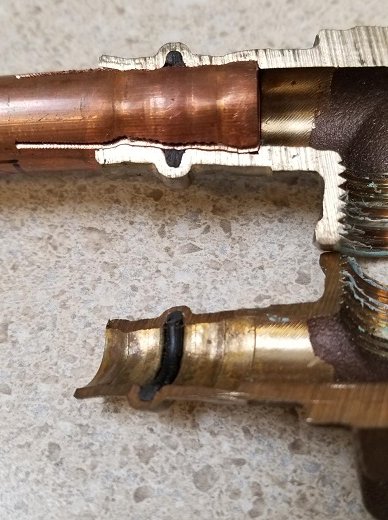Can You Kneel And Walk on Floor Tiles As You Lay Them? Expert Tips
Yes, you can kneel and walk on floor tiles as you lay them. But there are important things to consider for best results and safety.
Laying floor tiles is a common DIY project. But it’s not always easy. One question many people have is about kneeling and walking on the tiles during the process. It’s important to know how to do this correctly. Proper technique ensures the tiles stay in place and set well.
Also, it prevents damage to your new flooring. This guide will explain what you need to know. We’ll cover the best practices for moving on tiles while laying them. Stay with us to make your tiling project smooth and successful.

Credit: www.reddit.com
Introduction To Laying Floor Tiles
Laying floor tiles can be a rewarding home improvement project. It adds beauty and value to your home. But it requires proper technique and patience. This guide will help you understand the basics of laying floor tiles.
Why Proper Technique Matters
Proper technique ensures a smooth, even floor. It prevents tiles from cracking or coming loose. This saves time and money on repairs. Using the right tools and methods is key. It results in a professional-looking finish.
Common Mistakes To Avoid
One common mistake is not preparing the surface well. The floor must be clean and level. Uneven surfaces cause tiles to crack. Another mistake is using too much adhesive. This makes tiles slide out of place. Always use the right amount.
Incorrect spacing between tiles is another issue. Proper spacing allows for grout lines and expansion. Skipping this step leads to uneven tiles. Lastly, not allowing proper drying time is a big mistake. Always follow the recommended drying times for adhesive and grout.
Essential Tools For Tiling
Embarking on a tiling project can be both exciting and daunting. Whether you’re a seasoned DIY enthusiast or a beginner, having the right tools is crucial. Let’s dive into the essential tools you need to get started and make your tiling project a success.
Must-have Tools
First and foremost, you need the basics. These are the tools you simply cannot do without:
- Measuring Tape: Accuracy is key. A good measuring tape helps you get those precise cuts.
- Tile Cutter: For cutting tiles to fit around edges, corners, and fixtures.
- Notched Trowel: Used to spread adhesive evenly on surfaces.
- Level: Ensures your tiles are perfectly aligned.
- Tile Spacers: Keep consistent gaps between tiles for grouting.
- Rubber Mallet: Helps in gently tapping tiles into place without breaking them.
- Grout Float: For applying grout between tiles.
Optional Tools For Efficiency
While the must-have tools are essential, there are additional tools that can make your job easier and more efficient:
- Tile Nippers: Handy for making small cuts or adjustments.
- Electric Tile Saw: Speeds up the cutting process, especially for larger projects.
- Laser Level: Provides accuracy and saves time compared to traditional levels.
- Knee Pads: Protect your knees and make kneeling on hard tiles more comfortable.
- Tile Pliers: Helps in gripping and positioning tiles accurately.
Remember, while these optional tools aren’t absolutely necessary, they can significantly increase your efficiency and comfort. Plus, who doesn’t want an excuse to add more gadgets to their toolbox?
Now, let’s talk about kneeling and walking on floor tiles as you lay them. Imagine trying to work on a soft surface without damaging it – it’s a bit like walking on eggshells, right? The same care is needed for tiles. But with the right tools, you’ll be kneeling and walking like a pro in no time.
In conclusion, having the right tools can make a world of difference in your tiling project. So, gear up, gather your tools, and get ready to transform your space!
Preparing The Surface
Before you start laying floor tiles, prepare the surface well. A smooth, clean, and stable base ensures your tiles sit correctly. Follow these steps to get your floor ready.
Cleaning And Leveling
First, remove any old flooring, dirt, and debris. Sweep the area thoroughly. Then, mop the floor to remove any remaining dust or grease. This helps the tiles stick better. Next, check the floor’s level. Use a spirit level to find any high or low spots. Fill low areas with a leveling compound. Sand down any high spots. A flat surface is crucial for even tile installation.
Applying Primer
Once the floor is clean and level, apply a primer. Primer helps the adhesive bond better with the surface. Choose a primer suitable for your floor type. Pour the primer into a paint tray. Use a roller to apply it evenly across the floor. Allow the primer to dry completely. This usually takes a few hours. Now, your surface is ready for tile installation.
Kneeling On Floor Tiles
When you’re laying floor tiles, you might wonder, “Can I kneel and walk on them?” It’s a common question for DIY enthusiasts and even seasoned tilers. Kneeling on tiles during installation seems practical, but there are a few things to consider. Let’s dive into the details!
Is It Safe?
Kneeling on floor tiles while laying them can be safe, but it depends on several factors. First, ensure that the tiles are laid on a flat, clean surface. Any debris under the tiles can cause cracks or unevenness. Second, use protective knee pads to avoid injury. Your knees will thank you!
However, be cautious with newly laid tiles. They need time to set and walking on them too soon can disrupt the adhesive. Think of it like a cake fresh out of the oven; you wouldn’t want to cut into it before it cools down!
Impact On Tile Adhesion
The adhesion of tiles is crucial for a long-lasting floor. Kneeling or walking on tiles before the adhesive has set can affect this adhesion. Here’s why:
- Pressure: Your weight can push the tiles into the adhesive unevenly, causing them to shift or pop up later.
- Displacement: Moving tiles can create gaps and misalignment, which weakens the bond.
- Drying Time: The adhesive needs sufficient time to dry and harden. Disturbing it too soon can compromise its effectiveness.
So, what’s the best approach? Allow the adhesive to cure for at least 24 hours before walking on the tiles. This will ensure a strong bond and a smooth, even floor.
Imagine you’re building a house of cards. You wouldn’t want anyone to touch it while you’re still working on it, right? The same principle applies here – patience is key!
Tips For Kneeling On Tiles
Here are some tips to make the process easier and safer:
- Use Knee Pads: Invest in a good pair of knee pads. They provide cushioning and support, reducing strain on your knees.
- Work in Sections: Lay tiles in small sections, allowing each area to set before moving on.
- Check Alignment: Regularly check that tiles are aligned and level. A small mistake can become a big problem later!
By following these tips, you can ensure a smooth and successful tile installation process. Happy tiling!
Walking On Freshly Laid Tiles
Walking on freshly laid tiles can be a tricky situation. Freshly laid tiles require time to set and dry properly. Stepping on them too soon may cause damage. It is important to know when you can safely walk on them.
When Is It Permissible?
You should wait at least 24 hours before walking on new tiles. This time allows the adhesive to set. Some professionals recommend waiting up to 48 hours. Always check the manufacturer’s instructions for specific drying times.
Potential Risks
Walking on tiles too soon can cause them to shift. This can result in uneven tiles. It may also lead to cracks or breaks. The grout may not have enough time to cure. This can cause it to become weak or crumble. Avoid heavy foot traffic during the drying period. This will ensure the tiles set properly.

Credit: www.tiktok.com
Expert Techniques For Laying Tiles
Laying tiles on the floor can be challenging. But with the right techniques, you can achieve professional results. This section will cover expert techniques to help you lay tiles like a pro.
Using A Tile Spacer
Tile spacers are essential for a uniform finish. They help maintain even gaps between tiles. Place spacers at each corner of the tile. This ensures that the tiles are evenly spaced. Remove the spacers before the grout sets. This prevents the spacers from getting stuck in the grout.
Ensuring Even Grout Lines
Even grout lines enhance the overall look of your tiled floor. Use a level to check the alignment of your tiles. Adjust any tiles that are out of place. Consistent grout lines give a clean and professional finish. Patience and attention to detail are key.
Maintaining Proper Posture
When laying floor tiles, maintaining proper posture is crucial. It not only ensures your work looks professional but also protects your body from potential injuries. Let’s face it, laying tiles can be tough on your knees and back. So, let’s dive into some practical tips to keep you in good shape while you work.
Protecting Your Knees
Tile work requires a lot of kneeling, and this can be hard on your knees. Here are some ways to protect them:
- Use Knee Pads: Invest in a good pair of knee pads. They provide cushioning and support, reducing pressure on your knees.
- Take Breaks: Don’t stay in one position for too long. Stand up and stretch every 20-30 minutes to relieve the pressure.
- Cushion Mat: Use a soft mat or a folded blanket to kneel on. This can make a big difference in comfort and reduce the risk of knee injuries.
Avoiding Back Strain
Back strain is a common issue when laying tiles, especially if you’re not careful about your posture. Here’s how you can avoid it:
- Bend Your Knees: When lifting tiles or tools, always bend your knees instead of your back. This helps in distributing the weight more evenly and reduces the risk of back injuries.
- Keep Your Back Straight: Try to keep your back straight while working. Slouching or hunching over can lead to back pain over time.
- Use a Support Belt: A support belt can provide extra support to your lower back, especially if you’re working for long hours.
In conclusion, taking care of your posture while laying floor tiles is essential. Protecting your knees and avoiding back strain can make your job easier and more enjoyable. Remember, your health is just as important as the quality of your work. Happy tiling!

Credit: www.reddit.com
Aftercare And Maintenance
After laying floor tiles, proper aftercare and maintenance are essential. This ensures the tiles last long and look great. Neglecting aftercare can lead to damaged or dirty tiles. Follow these steps to maintain your new floor tiles.
Allowing Tiles To Set
After placing the tiles, let them set properly. Do not walk on the tiles for at least 24 hours. This allows the adhesive to dry and harden. Walking on tiles too soon can cause them to shift. This results in uneven and unstable flooring.
After 24 hours, check the tiles. Ensure they are firm and secure. If tiles move, wait another day before checking again. Patience is key.
Cleaning And Sealing Tips
Once tiles are set, clean them gently. Use a soft cloth and mild detergent. Avoid harsh chemicals, which can damage the tile surface. Clean any grout lines with a soft brush.
Sealing the tiles is a crucial step. Use a high-quality sealant for protection. Sealed tiles resist stains and moisture. Apply sealant evenly over the entire surface. Let the sealant dry completely before using the floor.
Regularly clean and reseal the tiles. This maintains their appearance and durability. A well-maintained tile floor can last for many years.
Frequently Asked Questions
Can You Walk On Tiles As You Lay Them?
No, you should not walk on tiles as you lay them. Allow 24-48 hours for the adhesive to set.
How Long After Laying Floor Tile Can You Walk On It?
You can usually walk on floor tile 24-48 hours after installation. This allows the adhesive to set properly.
What Is The 3/4/5 Rule For Laying Tile?
The 3/4/5 rule helps ensure tiles are laid at a perfect 90-degree angle. Measure 3 feet along one wall, 4 feet along the adjacent wall, and the diagonal between them should be 5 feet. This confirms the walls form a right angle.
Are Tile Floors Hard On Your Knees?
Tile floors can be hard on your knees due to their rigidity. Consider using mats or rugs for cushioning.
Conclusion
Kneeling and walking on tiles while laying them is practical. It offers better control and precision. Use knee pads for comfort and protection. Ensure the tiles are secured before stepping on them. This approach helps achieve a smooth, even surface.
Always follow safety measures to prevent injury. Proper technique guarantees a professional finish. Happy tiling!

My name is Maria, A professional merge game player with years of experience mastering games like Merge Dragons, Merge Gardens, Merge Mansion, and more. My passion for uncovering the best strategies, solving tricky puzzles, and discovering hidden secrets led her to create MergeGameplay.com.





